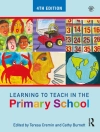Russia’s New Fin de Siècle brings together a range of texts on contemporary Russian culture – literary, cinematic and popular – as artists and writers try to situate themselves within the traditional frameworks of past and present, East and West, but also challenge established markers of identity. Investigating Russian culture at the turn of the 21st century, scholars from Britain, Sweden, Russia and the United States explore aspects of culture with regards to one overarching question: What is the impact of the Soviet discourse on contemporary culture? This question comes at a time when Russia is concerned with integrating itself into European arts and culture while enhancing its uniqueness through references to its Soviet past. Thus, contributions investigate the phenomenon of post-Soviet culture and try to define the relationship of contemporary art to the past.
Содержание
Introduction: Russia’s New fin de siècle: Contemporary Culture between Past and Present PART I: Written Discourse Chapter 1: The Function of the Soviet Experience in Post-Soviet Discourse – Maria Litovskaya Chapter 2: Cycles, Continuity and Change in Contemporary Russian Culture – Mark Lipovetsky Chapter 3: Victor Pelevin and the Void – Meghan Vicks Chapter 4: From Homo Zapiens to Media Sapiens: Post-Soviet Television in Russian Fiction – Andrei Rogatchevski PART II: Visual and Popular Culture Chapter 5: Afrika and Monroe – Post-Soviet Appropriation, East and West – Amy Bryzgel Chapter 6: Military Dandyism, Cosmism and Eurasian Imper-Art – Maria Engström Chapter 7: Sweet Dreams: Retro Imagery on Chocolate Packaging in Post-Soviet Russia – Bettina Jungen Chapter 8: Victory Day: Rituals and Practices of War Commemoration in Russia – Nataliya Danilova PART III: Cinematic Culture Chapter 9: A Kiss for the KGB: Putin as Cinematic Hero – Stephen M. Norris Chapter 10: ‘Address Your Questions to Dostoevsky’: Privatizing Punishment in Russian Cinema – Serguei Alex. Oushakine Chapter 11: Freedom and Uncertainty: The Cinema of Slava Tsukerman – Peter Rollberg Chapter 12: Muratova’s Cinema before and after Perestroika: Deconstructing and Rebuilding Film Aesthetics – Eugénie Zvonkine Chapter 13: The Place of Action Must Not be Changed: Aleksei Balabanov’s St Petersburg – Birgit Beumers












